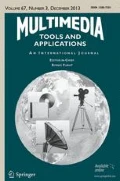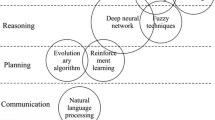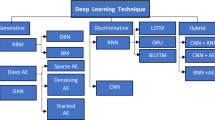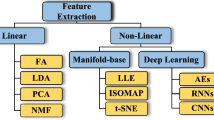Abstract
Recommendation System is one of such solutions to overcome information overload issues and to identify products most relevant to users and provide suggestions to users for items they might be interested in consuming or elements matching their needs. The significant challenge of several recommendation approaches is that they suggested a huge number of things to the target user. But the exciting items, according to the target user, are seen at the bottom of the recommended list. The proposed approach has improved the quality of recommendations by implementing some of the unique features in the new framework of auto encoder called semi-autoencoder, which contains the rating information as well as some additional information of users. Autoencoder is widely used in the recommender system because it gives the best result for feature extraction, dimensionality reduction, regeneration of data, and a better understanding of the user’s characteristics. The experimental results are compared with some established popular methods using precision, recall, and F-measure evaluation measures. Users generally don’t want to see lots of suggestions. With its six building blocks, the proposed approach gives better performance for the top 10 recommendations compared to other well-known methods.




Similar content being viewed by others
References
An S, Zhao Z, Zhou H (2017) Research on an Agent-Based Intelligent Social Tagging Recommendation System. In 2017 9th IEEE International Conference on Intelligent Human-Machine Systems and Cybernetics (IHMSC) vol. 1, pp. 43–46
Bobadilla J, Ortega F, Hernando A, Gutiérrez A (2013) Recommender systems survey. Knowl-Based Syst 46:109–132
Bokde D, Girase S, Mukhopadhyay D (2015) Matrix factorization model in collaborative filtering algorithms: a survey. Elsevier Procedia Computer Science 49:136–146
Cheng HT, Koc L, Harmsen J, Shaked T, Chandra T, Aradhye H, Anderson G et al (2016) Wide & deep learning for recommender systems. In Proceedings of the 1st workshop on deep learning for recommender systems, pp. 7–10
He X, Liao L, Zhang H, Nie L, Hu X, Chua T-S (2017) Neural collaborative filtering. In Proceedings of the 26th international conference on world wide web, pp. 173–182
He M, Wang B, Xiangkun D (2019) HI2Rec: exploring knowledge in heterogeneous information for movie recommendation. IEEE Access 7:30276–30284
Herlocker JL, Konstan JA, Borchers A, Riedl J (2017) An algorithmic framework for performing collaborative filtering. In Proceedings of the 22nd annual international ACM SIGIR conference on research and development in information retrieval, pp. 230–237
Koren Y, Bell R, Volinsky C (2009) Matrix factorization techniques for recommender systems. Computer 42(8):30–37
Li S, Kawale J, Yun F (2015) Deep collaborative filtering via marginalized denoising auto-encoder. In Proceedings of the 24th ACM International on Conference on Information and Knowledge Management, 811–820
Liang D, Krishnan RG, Hoffman MD, Jebara T (2018) Variational autoencoders for collaborative filtering. In Proceedings of the 2018 World Wide Web Conference, 689–698
Ma H, Yang H, Lyu MR, and King I (2008) Sorec: social recommendation using probabilistic matrix factorization. In Proceedings of the 17th ACM conference on Information and knowledge management, pp. 931–940
Melville P, Mooney RJ, Nagarajan R (2002) Content-boosted collaborative filtering for improved recommendations. Aaai/iaai 23:187–192
Murali MV, Vishnu TG, Victor N (2019) A Collaborative Filtering based Recommender System for Suggesting New Trends in Any Domain of Research. In 2019 5th IEEE International Conference on Advanced Computing & Communication Systems (ICACCS), pp. 550–553
Oramas S, Ostuni VC, Di Noia T, Serra X, Di Sciascio E (2016) Sound and music recommendation with knowledge graphs. ACM Transactions on Intelligent Systems and Technology (TIST) 8(2):1–21
Ricci F, Rokach L, Shapira B (2011) Introduction to recommender systems handbook. In: Recommender systems handbook. Springer, Boston, pp 1–35
Rivas A, Chamoso P, González-Briones A, Casado-Vara R, Corchado JM (2019) Hybrid job offer recommender system in a social network. Expert Syst 36:e12416. https://doi.org/10.1111/exsy.12416
Saini S, Saumya S, Singh JP (2017) Sequential purchase recommendation system for e-commerce sites. In IFIP International Conference on Computer Information Systems and Industrial Management, pp. 366–375. Springer, Cham.
Sammut C, Webb GI (eds) (2011) Encyclopedia of machine learning. Springer Science & Business Media, Berlin
Schafer JB, Frankowski D, Herlocker J, Sen S (2007) Collaborative filtering recommender systems. In: The adaptive web. Springer, Berlin, Heidelberg, pp 291–324
Sedhain S, Menon AK, Sanner S, Xie L (2015) Autorec: Autoencoders meet collaborative filtering. In Proceedings of the 24th international conference on World Wide Web, pp. 111–112
Sharma R, Singh R (2016) Evolution of recommender systems from ancient times to modern era: a survey. Indian J Sci Technol 9(20):1–12
Tewari AS (2020) Generating Items Recommendations by Fusing Content and User-Item based Collaborative Filtering. Elsevier Procedia Computer Science 167:1934–1940
Tewari AS, Barman AG (2018) Sequencing of items in personalized recommendations using multiple recommendation techniques. Expert Syst Appl 97:70–82
Turcotte J, York C, Irving J, Scholl RM, Pingree RJ (2015) News recommendations from social media opinion leaders: Effects on media trust and information seeking. J Comput-Mediat Commun 20(5):520–535
Velammal BL (2019) Typicality-based collaborative filtering for book recommendation. Expert Syst 36:e12382. https://doi.org/10.1111/exsy.12382
Wu Y, DuBois C, Zheng AX, Ester M (2016) Collaborative denoising auto-encoders for top-n recommender systems. In Proceedings of the Ninth ACM International Conference on Web Search and Data Mining, 153–162
Xu J, Ye F, Yu H, and Wang B (2019) Query recommendation based on improved query flow graph. In 2019 IEEE International Joint Conference on Neural Networks (IJCNN), pp. 1–8
Zhang S, Yao L, Xiwei X (2017) AutoSVD++ An Efficient Hybrid Collaborative Filtering Model via Contractive Auto-encoders. In Proceedings of the 40th International ACM SIGIR conference on Research and Development in Information Retrieval, 957–960
Zhang S, Yao L, Sun A, Tay Y (2019) Deep learning based recommender system: A survey and new perspectives. ACM Computing Surveys (CSUR) 52(1):1–38
Author information
Authors and Affiliations
Corresponding author
Additional information
Publisher’s note
Springer Nature remains neutral with regard to jurisdictional claims in published maps and institutional affiliations.
Rights and permissions
About this article
Cite this article
Tewari, A.S., Parhi, I., Al-Turjman, F. et al. User-centric hybrid semi-autoencoder recommendation system. Multimed Tools Appl 81, 23091–23104 (2022). https://doi.org/10.1007/s11042-021-11039-z
Received:
Revised:
Accepted:
Published:
Issue Date:
DOI: https://doi.org/10.1007/s11042-021-11039-z




